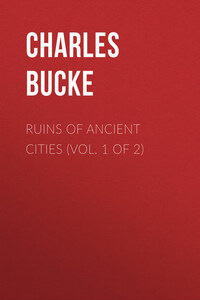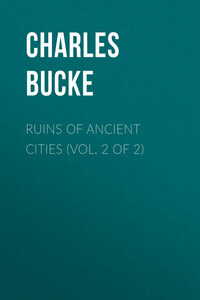TO
THOMAS HILL MORTIMER, ESQ.,
(OF THE ALBANY),
THE FOLLOWING PAGES ARE RESPECTFULLY INSCRIBED,
BY
HIS FAITHFUL AND GREATLY OBLIGED
FRIEND AND SERVANT,
The reader is requested to observe, that, though the plan of this work is entirely his own, the compiler of it does not put it forth as in any way original in respect to language or description. It is, in fact, a much better book, than if it had been what is strictly called original, (which, indeed, must have involved an utter impossibility:) for it is a selection of some of the best materials the British Museum could furnish; sometimes worked up in his own language; and sometimes – and, indeed, very frequently – in that of others: the compiler having, at an humble distance and with unequal steps, followed the plan which M. Rollin proposed to himself, when he composed his celebrated history of ancient times. – "To adorn and enrich my own," says that celebrated writer, "I will be so ingenuous as to confess, that I do not scruple, nor am ashamed, to rifle whereever I come; and that I often do not cite the authors from whom I transcribe, because of the liberty I take to make some slight alterations. I have made the best use in my power of the solid reflections that occur in the Bishop of Meaux's Universal History, which is one of the most beautiful and most useful books in our language. I have also received great assistance from the learned Dean Prideaux's 'Connexion of the Old and New Testament,' in which he has traced and cleared up, in an admirable manner, the particulars relating to ancient history. I shall take the same liberty with whatever comes in my way, that may suit my design, and contribute to its perfection. I am very sensible, that it is not so much for a person's reputation to make use of other men's labours, and that it is in a manner renouncing the name and quality of author. But I am not over-fond of that title, and shall be extremely well pleased, and think myself very happy, if I can but deserve the name of a good compiler; and supply my readers with a tolerable history, who will not be over-solicitous to inquire what hand it comes from, provided they are but pleased with it."
Having followed this example, – the compiler wishes he could say with equal effect, – he will be fully satisfied, should judicious readers feel inclined to concede, that he has shown some judgment in selecting his materials, and some taste in binding "the beads of the chain," that connects them together. He disclaims, in fact, (as, in the present instance, he is bound to do), all the "divine honours" of authorship; satisfied with those of a selecter, adapter, and compiler; and happy in the hope that he has here, by means of the superior writers, whose labours he has used, furnished his readers with an useful, accurate, and amusing work.
London, January 1st, 1840.
Of chance or change, oh! let not man complain;
Else shall he never, never, cease to wail;
For from the imperial dome, to where the swain
Rears his lone cottage in the silent dale,
All feel the assault of fortune's fickle gale.
Art, empire, earth itself, to change are doom'd;
Earthquakes have raised to heaven the humble vale;
And gulfs the mountains' mighty mass entomb'd;
And where the Atlantic rolls wide continents have bloom'd.
BEATTIE.
This city stood on the Asiatic side of the Hellespont, now called the Dardanelles, opposite to the city of Sestos, on the European side, the distance from each other being about two miles. Abydos was built by the Milesians, and became greatly celebrated from the circumstance that it was here that Xerxes built his bridge over the Hellespont; – also for the loves of Hero and Leander.
Philip, king of Macedon, laid siege to this city, and nothing of what is generally practised in the assaulting and defending of cities was omitted in the siege. No place, say the historians, was ever defended with greater obstinacy, which might be said at length, on the side of the besieged, to have risen to fury and brutality. Confiding in its own strength, they repulsed, with the greatest vigour, the approaches of the Macedonians. Finding, however, at last, that the outer wall of their city was sapped, and that the Macedonians carried their mines under the inner one, they sent deputies to Philip, offering to surrender the city on certain conditions, one of which was, that all the free citizens should retire whithersoever they pleased, with the clothes they then had on. These conditions were not approved by Philip, he therefore sent for answer, that the Abydonians had only to choose, whether they would surrender at discretion or continue to defend themselves gallantly as they had before done.
When the citizens heard this they assembled together, to consider what they should do in so great an emergency; and here we have to record, not in our own language but in that of others, for our pen would be unequal to the description, circumstances scarcely to be paralleled in all history! It is thus given by Rollin: —









